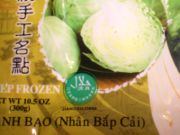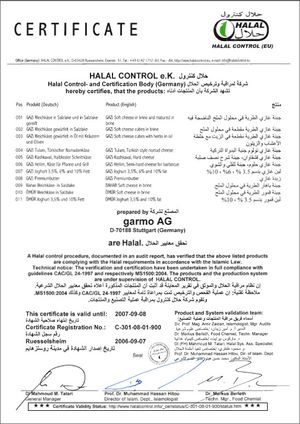مباح
مباح
مباح أو حلال, كلمة عربية تشير الى الى أى فعل أو شىء,يكون مسموحا به أو مجازا بفعله أو تناوله, حسب الشرع الإسلامي أو التقاليد الإسلامية . و هو عكس "حرام" haraam. و الإصطلاح يشير إلى الغذاء الذى يرى أنه مباح تبعا التشريع الإسلامى. و قدر أن 70% من المسلمين في أنحاء العالم يتحرون تناول الإغذية الحلال حسب الشرع الإسلامى [1] و أن سوق الأغذية الحلال عالميا يتصاعد حتى يصل الى ما يقرب من 850 بليون (دولار أميريكي.)[2].
|
جزء من سلسلة عن الإسلام
| |
| فـقـه | |
| أحـكـام | |
| الألقاب العلمية | |
|
|
فىاللغة العربية, الكلمة 'حلال'أو مباح تشير الى أى مباح في الشرع أو التشريع الإسلامى.
"حلال" الكلمة
إستخدام هذا الإصطلاح يختلف بين المجتمعات المتحدثة عربي , وبين غير المتحدثة باللغة العربية.
فى الأمم المتحدثة عربي , يستخدم الإصطلاح لوصف أى شىء مباح تحت الشرع الإسلامي , بعكس حرام , وذللك الذى يعد ممنوعا . وهذا يشمل السلوك الإنسانى , الإتصال بالتخاطب, اللباس, التواصل, المعاملات و القوانين الخاصة بالغذاء.
و في غير الأمم المتحدثة عربي, يستخدم الإصطلاح غالبا في نطاق ضيق , فحسب قواعد الغذاء الإسلامية, و خاصة عندما نخص يالذكر اللحوم والدواجن, بالرغم من كونها يمكن, أن تستخدم إستخداما أوسع.
حلال
الإسلام لديه قواعد تشمل أى غذاء يؤكل وأى غذاء لايؤكل و أيضا حول طرق الذبح الشرعية للحيوان المعد للتناول. , المعروف ذبيحة.
المواد المحرمة تصريحا
مجموعة من الأشياء نص على أنها محرمة حيث تتسبب في ضرر (حرام) لللآدميين إذا ما أإبتلعت و هى لذلك, جعلت ممنوعة, حسب جملة من النصوص القرآنية :
- لحم الخنزير( لحم الخنزير)[القرآن 2:173]
- الدم[القرآن 2:173]
- الحيوانات المذبوحة بإسم غير الله سبحانه وتعالى. و كل ما نذر أو أعطى أو ذبح مذبح وثنى "إلهي". [القرآن 2:173] [القرآن 5:3]
- Carrion[القرآن 2:173]
- وهو الحيوان الذي تم خنقه, أو ضرب حتى الموت, أو قتل بالسقوط من مرتفع, أو أصيب بإصابات أدت الى موته, أو تم إفتراسه من قبل حيوان ,أو وحش, فريسةthat و تم ذبحه وهو ما يزال حيا ; [القرآن 5:3]
- طعام لم يذكر إسم الله عليه . [القرآن 6:121]
- الكحول و السميات الأخرى. [القرآن 5:90-91]
- الدخان E.G التبغ , الحشيش ..الى آخر ه
Lawful, to you is all water-game, and that which the sea brings forth, [القرآن 5:96]
الذبح: طريقة الدبح
Dhabiha is the prescribed method of ritual slaughter of all animals excluding fish and most sea-life per Islamic law. This method of slaughtering animals consists of a swift, deep incision with a sharp knife on the neck, cutting the jugular veins and carotid arteries of both sides but leaving the spinal cord intact.
الكوشير والحلال
قالب:مقارنة بين تشريعات الطعام الإسلامية واليهودية main| There is a great deal of similarity between the laws of Dhabiĥa halal and kashrut, and there are also various differences. Whether or not Muslims can use kashrut standards as a replacement for halal standards is an ongoing debate, and the answer depends largely on the individual being asked.[3] While some Muslim halal authorities accept kosher meat as halal, none of the Jewish kosher authorities accept meat certified as halal as kosher due to different requirements (see comparison article).
الحلال في غير المجتمعات الإسلامية

In Dearborn, Michigan, الولايات المتحدة, home to one of the largest Muslim and Arab populations in the United States, a number of fast food chains like McDonald's introduced halal chicken nuggets. [4] In the UK and United States, halal fried chicken has become widely popular with both Muslim and non-Muslim populations, and thousands of outlets such as Chicken Cottage, Kennedy Fried Chicken, Brown's Chicken, and Crown Fried Chicken have sprung up. نيويورك in particular is also home to many Halal food carts serving gyros, chicken platters and other fast food, while the UK and Europe more generally have many Muslim-owned Döner kebab shops.
A 2005 law passed in a county in Ohio, United States made it illegal to sell, distribute, and/or produce food that has been mislabeled "halal," when it is determined that the food does not meet Islamic dietary standards. Similar laws protect kosher foods [5]. See Kashrut.
McDonald's is intending to offer Halal meals in the United States and some parts of the United Kingdom with two of its franchises currently on trial, offering this service. Six McDonald's Restaurants in Australia (two outlets in Melbourne and four in Sydney) have Halal meals, India, Sri Lanka, Indonesia, Pakistan, Singapore, Malaysia and South Africa are Halal certified. [6][citation needed, link error]
Mcdonalds, Pizza Hut and KFC have been made Halal in Sri Lanka by the Jamiyathul Ulama of Sri Lanka, the only competent authority to give out the certification.
Pizza Hut, KFC, Wendys, Carls Jr, Burger King, A&W, Dunkin Donuts, Subway stores in Islamic countries also serve halal foods.
الذبيحة الحلالl
Dhabiĥa halal is relatively difficult to adhere to in a non-Muslim country:
- The abundance of pork and non-dhabiĥa meats at restaurants presents a rather difficult problem to overcome. While a Muslim will not order a non-dhabiĥa halal dish, there is a concern about cross-contamination. This is likely to occur when the dhabiĥa halal dish is prepared with the same cooking tools as other non-dhabiĥa halal dishes. Food and juices from the two dishes are likely to be exchanged, technically rendering the dhabiĥa halal dish as haraam.
- Many apparently meat-free dishes, and even some desserts, contain pork, gelatin, or other non-conforming substances. There is also a concern in the Muslim community about food additives such as monosodium glutamate (MSG) that may use enzymes derived from pig fat in the production process. It is very difficult to avoid such food additives as they are widely used and are not declared on restaurant menus. Some muslim organizations compile tables of such additives which are considered to be halal.[7]
- Alcohol, especially wine, is frequently used in cooking. It is largely used in sauces and cakes, and is also present as an ingredient in vanilla and other extracts. Alcohol in food flavors will mostly evaporate if it is used as a solvent in food flavors for baked products or heat treated products. One opinion is that food cooked with wine is haraam since it involves paying for the wine and the alcohol does not evaporate totally in some meats[8]. Some Islamic scholars do not consider a food product Halal even if it is made with all Halal ingredients but food flavor in which ethyl alcohol was used as a solvent. But other Islamic scholars recommend food products made with all Halal ingredients even if food flavors containing ethyl alcohol as a solvent. [9]
Since the turn of the 21st century, there have been efforts to create organizations such as the Muslim Consumer Group that certify food products as halal for Muslim consumers.
- In 1986, Islamic Meat & Poultry was founded in Stockton, California. Islamic Meat & Poultry is a USDA inspected Halal only, hand slaughter and meat processing facility. Islamic Meat & Poultry follows the principles of slaughter according to Islamic Shariah.
- In 1993 Ahsan Mohyuddin founded the facility of Halal Meat & Food Corporation in Bladenboro, NC. Contrary to belief, Halal Meat & Food Corp is not the first halal meat company in the US.
الطعام الحلال ومصلحة الحيوان
The ritual method of slaughter as practiced in Islam and Judaism has been decried as inhumane by some animal welfare organisations in the UK who have stated that it "causes severe suffering to animals."[10][11] In 2003, an independent advisory group - the Farm Animal Welfare Council (FAWC) - concluded that the way halal (and Kosher) meat is produced causes severe suffering to animals and should be banned immediately. FAWC argued that cattle required up to two minutes to bleed to death when such means are employed. The Chairperson of FAWC at the time, Judy MacArthur Clark, added, "this is a major incision into the animal and to say that it doesn't suffer is quite ridiculous."
Halal and kosher butchers deny their method of killing animals is cruel and expressed anger over the FAWC recommendation [11].
Majid Katme of the Muslim Council of Britain also disagreed, stating that "it's a sudden and quick haemorrhage. A quick loss of blood pressure and the brain is instantaneously starved of blood and there is no time to start feeling any pain."[11]
In April 2008, the Food and Farming minister in the UK, Lord Rooker, stated that Halal and kosher meat should be labelled when it is put on sale, so that the public can decide whether or not they want to buy food from animals that have bled to death. He was quoted as saying, "I object to the method of slaughter ... my choice as a customer is that I would want to buy meat that has been looked after and slaughtered in the most humane way possible.". The RSPCA supported Lord Rooker's views. [12]
For the Food and Agriculture Organization of the United Nations and the Humane Society International, "the animals that are slaughtered according to Kosher and Halal should be securely restrained, particularly the head and neck, before cutting the throat" as "movements (during slaughter) results in a poor cut, bad bleeding, slow loss of consciousness if at all and pain." [13]
However, a study incorporating EEG (Electroencephalograph) with electrodes surgically implanted on the skull of 17 sheep and 15 calves, and conducted by Wilhelm Schulze et al. at the University of Veterinary Medicine in Germany concluded that "the slaughter in the form of a ritual cut is, if carried out properly, painless in sheep and calves according to EEG recordings and the missing defensive actions" (of the animals) and that "For sheep, there were in part severe reactions both in bloodletting cut and the pain stimuli" when Captive Bolt Stunning (CBS) was used.[14] This study is cited by the German Constitutional Court in its permitting of dhabiha slaughtering.[15]
أنظر أيضا
- حرام
- المكروه
- الفرق بين الحلال والذبيحة
- شرائع الطعام الإسلامية
- إستهلال
- ذبيحة
- Kashrut
- الحيوانات الدنسة
- Scottish pork taboo
- المشروبات والأطعمة المحرمة
- كوشير
المراجع
- ^ Dorothy Minkus-McKenna. "the Pursuit of Halal". Progressive Grocer ; Dec 1, 2007; 86, 17;
- ^ تسويق منتجات الحلال(المباحة): The Way Forward by Dr. Saad Al-Harran & Patrick Low, Halal Journal Mar 03, 2008
- ^ http://www.oneummah.net/content/view/17/40/1/1/
- ^ http://islam.about.com/library/weekly/aa072901a.htm
- ^ Religious food gets protection - 08/05/05
- ^ Halal certified eating establishments in Singapore.
- ^ Food additive numbers
- ^ IslamonLine.net
- ^ Muslim Consumer Group
- ^ Halal killing may be banned | The Guardian | Guardian Unlimited
- ^ أ ب ت BBC NEWS | UK | Halal and Kosher slaughter 'must end'
- ^ Halal and kosher meat should not be slipped in to food chain, says minister
- ^ Guideline for Humane Handling, Transport and Slaugher of Livestock, Religious or ritual slaughter, [1][2]
- ^ Schulze W, Schultze-Petzold H, Hazem AS, Gross R. Experiments for the objectification of pain and consciousness during conventional (captive bolt stunning) and religiously mandated (“ritual cutting”) slaughter procedures for sheep and calves. Deutsche Tierärztliche Wochenschrift 1978 Feb 5;85(2):62-6. English translation by Dr Sahib M. Bleher
- ^ Das Bundesverfassungsgericht
الروابط الخارجية
- Halal Multivitamins, Made in USA, Certified by IFANCA
- Gateway to Malaysia World Halal Hub
- Halal Knowledge Centre
- Laws of Islam concerning food
- Muslim method of slaughtering
- Answering criticism
- What Is Halal?
- Halal and Haram research
- Consumers increasingly perceive kosher and halal food as safer Scientist Live
- Is conventional meat halal/zabiha? Green Zabiha
- The Halal Standard Institute of Thailand
- The Halal Science Center,Thailand
- The World's Largest Directory of Halal Businesses

